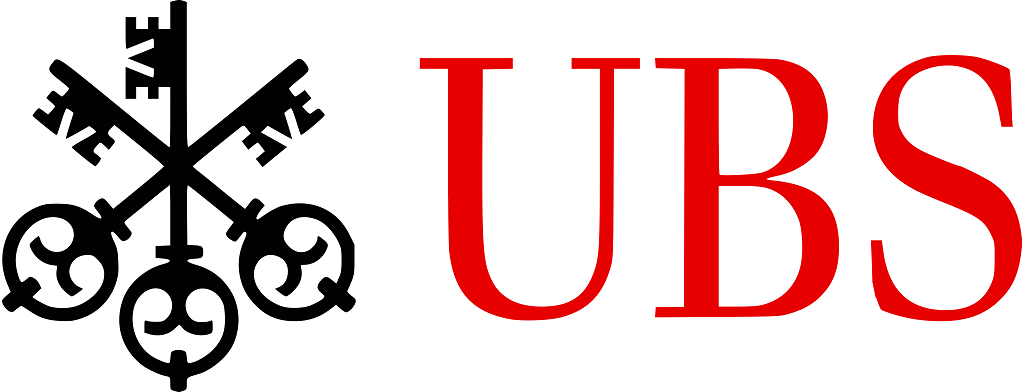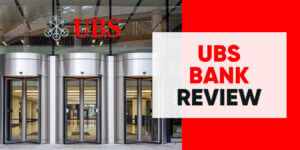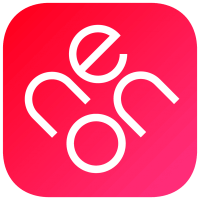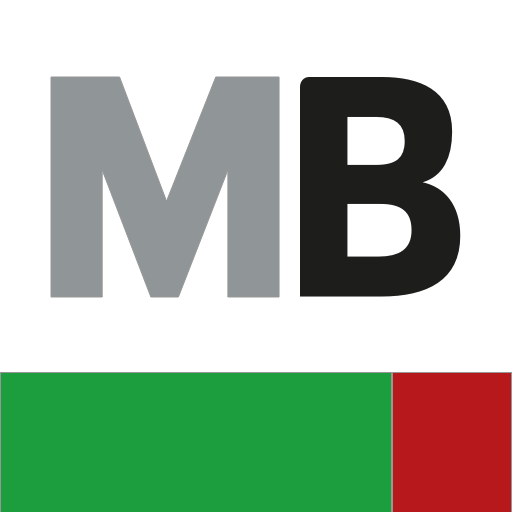UBS Bank Review 2024 – Pros & Cons
| Updated: |(Disclosure: Some of the links below may be affiliate links)
UBS is likely the most famous Swiss bank. Even many foreigners know this big bank. It is also the biggest bank in Switzerland by market capitalization. UBS operates in many countries, not only in Switzerland.
But, is it any good as a banking service? I will answer this exact question in this review.
I will look into UBS’s banking services in detail and see the advantages and disadvantages of this bank.
By the end of the article, you will know whether you should use a UBS bank account.
| Monthly fee | 13 CHF |
|---|---|
| Users | 3’000’000 |
| Card | VISA or Mastercard debit card |
| Currencies | CHF |
| Withdrawals in Switzerland | Free at UBS ATMs, 2 CHF at other |
| Withdrawals abroad | 5 CHF |
| Languages | English, French, German, and Italian |
| Custody bank | UBS |
| Depositor protection | 100’000 CHF |
| Established | 1862 |
| Headquarters | Zürich, Switzerland |
UBS

UBS has a long history. It started in 1862 as the Bank of Winterthur. In 1912, it merged with the Toggenburger Bank to form the Union Bank of Switzerland (UBS). In 1998, it merged with the Swiss Bank Corporation (SBS), another large union bank.
From this point, they became UBS only, not an acronym anymore. The bank results from more than 300 financial firms merged over time. These firms now form a financial giant.
In 2021, UBS had about 3 million customers in Switzerland. They offer many services:
- Savings and checking accounts
- Vested benefits and third pillar accounts
- Investment funds
- Broker accounts
- Mortgages
- Private wealth management
In this article, I will only focus on UBS’s banking packages.
Keep in mind that I have never used UBS myself. This review results from all the information I could find from UBS and its customers.
Banking features
We look at the features UBS offers for bank accounts. To access the banking features, you have several choices:
- The e-banking web application
- The mobile applications
- Directly in the offices
From the applications, you can do everything you expect from a bank account:
- See your balance and transactions
- Pay your bills
- Transfer money to other accounts
- Pay e-bills
That’s about all you need from a bank account.
Contrary to many banks, UBS has straightforward banking packages. Their banking package is called UBS Me. They have different versions of the package based on your situation:
- UBS Me for Young People and students for people between 12 and 30 years old
- UBS Me for families and couples
- UBS Me for cross-border workers
- UBS Me for young professionals (below 32 years old)
- UBS Me for individuals (everybody else)
The features are the same between the different versions, but the prices differ slightly. This review will cover the UBS Me for individuals (the default version).
With your banking package, you get a CHF private account and several savings accounts (if you want). You will also get a debit card and a credit card included in the package. You can choose between Visa and Mastercard for your cards. You can also use your account with TWINT.
One thing that many people like is that everything is available in English. Both the applications and the support are available in English. English availability is excellent for people who do not speak one of the Swiss national languages.
Overall, UBS Me should have more than enough features for anybody.
Banking fees
We must take a look at the fees for the banking packages.
First, we start with the monthly account price. As you can expect from UBS, their banking packages are not free. First, we must distinguish two versions of the packages:
- Standard. You will only get statements by email or on the phone
- Traditional: You get paper statements.
The default price is 13 CHF per month for the standard package and 18 CHF for the traditional package. I hope that most people are using digital statements and should avoid paying 60 CHF per year for paper statements, so we will focus on the standard package.
If you have more than 10’000 CHF on your account or a mortgage with UBS, you will get 5 CHF off your base price. So the Standard package will only cost you 8 CHF per month (96 CHF per year).
With these fees, several things are included:
- Send money to and from your account
- Pay your bills and e-bills
- Pay with your card in shops that support the PostFinance card
- Withdraw cash in all UBS ATMs
If you withdraw money from another ATM, you will pay 2 CHF to withdraw Swiss Francs in Switzerland, 5 CHF for a withdrawal in EUR in Switzerland, and 5 CHF for any withdrawal abroad.
You can also get modules to get more withdrawal for free at other ATMs:
- Module Switzerland: 2 CHF per month for two free withdrawals in Switzerland per month.
- Module Worldwide: 5 CHF per month for four free withdrawals in Switzerland and two free withdrawals abroad per month.
I think there are enough UBS ATMs so that you do not have to use any of these modules.
If you use your card abroad or in foreign currencies, you will pay a surcharge of 1.75% on top of the exchange rate. This fee is expensive, and you should not use these cards for that purpose.
Finally, if you have more than 250’000 CHF on your account, you must pay a 0.75% negative interest rate.
These fees are better than I expected. You can get a good banking package for 8 CHF per month, less than 100 CHF per year. I would probably not pay for it, but it is not horrible.
Personal Account
Interestingly, UBS has another option: The Personal Account.
This is not really a package because there is no card with this account. You can access the account from all the different UBS apps.
The advantage of this account is that it costs only 5 CHF per month. If you have more than 10’000 CHF in your account, it will only cost 3 CHF per month.
In some cases, you may not need a card, so having a cheaper account may make sense.
User Reviews
We should look at what other users think of UBS.
Usually, I use Trustpilot to get information about a product. But in that case, there are barely 100 reviews of UBS on Trustpilot. They got a terrible average score of 1.5 stars out of 5. However, I do not think we can judge a bank of 3 million customers with 100 reviews.
Many people complain about the fees, but most of the bad reviews are of awful quality and should be ignored.
Looking at the good reviews, it seems like people with private wealth management services are pretty satisfied with UBS’s services.
Unfortunately, I have not found a good source of UBS reviews.
On the other hand, I know many expatriates who use UBS because it accepts foreigners more than other banks. All these people I know are satisfied with UBS’s offer.
I would say that reviews of UBS banking services are very mixed. However, I have not been able to find enough information on the subject.
Security
We also need to look at the security of using UBS as a bank account.
Currently, UBS customers are protected like any other Swiss bank by the Esisuisse deposit protection scheme. So, if UBS goes bankrupt, customer assets are protected for up to 100’000 CHF.
However, since Esisuisse has a limit of 6 billion CHF and UBS has more than three million customers, the guarantee would only be, on average, 2000 CHF per customer. This total limit is a disadvantage of Esisuisse since larger banks are less protected than small ones.
Now, in practice, things would likely be different. And we have a recent example to prove that. Indeed, in 2008, UBS almost went bankrupt due to the subprime crisis (the so-called Great Recession). And the Swiss National Bank (SNB) bailed them out with 60 billion CHF.
Today, UBS is considered a bank that is too big to fail. These banks have stronger restrictions to avoid issues. These restrictions do not mean that UBS is safe from bankruptcy. This does not mean that the SNB would bail them out a second time. But I would be surprised if the SNB would not help if turmoil arose again.
So, from a regulation point of view, UBS is relatively safe. From a historical point of view, they are not safe since they already had to be bailed out. However, it is considered much safer these days than in 2008.
From a technical point of view, they have high standards of security. They have options for multiple authentication factors in their digital access. And their website contains a lot of information on cybersecurity, which is a good sign.
I would say that it is currently safe to have your assets at UBS. However, I do not think this is the safest bank.
Alternatives
UBS vs Neon
We can quickly compare UBS with Neon Bank (my favorite digital bank):
|
5.0
|
3.0
|
|
Free
|
8 CHF per month
|
|
|
|
|
- Pay abroad for free
- Everything from your phone
- No offices
- Opening fee of 10 CHF
- Medium limits
- In-Person support
- High limits
- Free cash deposits
- Expensive abroad
- Expensive transfers abroad
Overall, UBS is significantly more expensive, but you will get access to their offices, and you can deposit cash easily in your account. You also get higher limits.
Neon is my favorite Swiss bank. You can read my Neon Review for more information.
UBS vs Migros Bank
We can also quickly compare UBS with Migros Bank (my main traditional bank):
|
3.5
|
4.0
|
|
8 CHF per month
|
3 CHF per month
|
|
|
|
|
- Well-established bank
- Good for expats
- Many features
- Expensive account
- Expensive abroad
- Expensive international transfers
- Very affordable
- All the features you need
- Not available in English
- Expensive abroad
- Expensive international transfers
There are very few differences between these two bank accounts except for the price. UBS is more well-known, and some trust it more than other banks. Also, Migros Bank is pretty bad if you only speak English.
You can read my review of Migros Bank for more information.
FAQ
What is the difference between UBS Standard and Traditional bank accounts?
Standard is 5 CHF cheaper month but you will not get statements per mail, only digitally. With Traditional, you will receive paper statements.
Who is UBS Bank good for?
UBS Bank is good for people that really want to use UBS. It is also good for foreigners, because they are used to deal with them.
Who is UBS Bank not good for?
UBS Bank is not great for people that want to save on fees. It is also not good if you want a fully digital bank account.
UBS Summary

UBS is the largest bank of Switzerland. They offer several different bank accounts, for different needs.
Product Brand: UBS
3.5
UBS Bank Account Pros
Let's summarize the main advantages of UBS Bank Account:
- All the features you need.
- Good reputation.
- Trusted bank.
- Not extremely expensive.
- Good technical security.
UBS Bank Account Cons
Let's summarize the main disadvantages of UBS Bank Account:
- Relatively Expensive bank accounts.
- They had to be bailed out in the past.
Conclusion
Overall, I do not see any significant advantage of using UBS bank over other cheap banks. Their prices are not the world’s end since the basic banking package should contain all you need for 96 CHF per year. Nevertheless, they do not have any extra features that other cheaper banks do not provide.
So, I would not recommend changing to UBS if you use another cheaper bank. On the other hand, I would not necessarily switch from UBS to another, more affordable bank.
Many people, especially expatriates, are pretty happy with this bank. It is easier for a foreigner to use than a local or digital bank. Compared to some other banks, it also has good English language support.
Also, many believe their money is safer with UBS. I am not sure that is the case. We should remember that the SNB had to bail out UBS during the last financial crisis. The future will tell if they learned from their mistakes.
If you want a brick-and-mortar bank, I still recommend Migros Bank. I have an account here, and I am satisfied with their services. If you have more than 7500 CHF, you can have an account without management fees. And they have all the features you need. I have a full review of Migros Bank if you are interested.
If you want a digital bank, you should look at Neon. It is my main bank account these days. Setting up an account is straightforward, and all the features you need are available directly in the app. However, you cannot go to a counter and speak to someone. If you want more information, you can read my Neon review.
What about you? What do you think about UBS?
Download this e-book and optimize your finances and save money by using the best financial services available in Switzerland!
Download The FREE e-bookRecommended reading
- More articles about Best banks
- More articles about Save
- What is the Best Swiss Bank in 2024?
- Raiffeisen Bank Review 2024 – Pros & Cons
- CSX Review 2024 – Digital Bank account by Credit Suisse



Hi Baptiste,
One of the reasons I stay with UBS is that I travel a lot and they offer EUR credit cards and so there is no FX fee when debited later from my EUR account.
Hi Tom,
But how do you get money into your EUR account? This is generally what’s expensive.
Use wise.com or even better https://cambiavalute.ch/
to exchange your chf to eur…
Hi Baptiste,
I am not sure I understand you question. Why would it be expensive? EUR transfers (SEPA) are very cheap (0.30 CHF/transfer).
Hi Tom,
EUR transfers are very cheap indeed, sometimes even free. What’s not cheap is converting CHF to EUR. So, having a EUR account is great if you receive some EUR money, but not if you have to convert CHF to EUR.
Hi Baptiste,
I see what you mean. No, I never convert money through a bank which is a rip off. I convert currencies through my Interactive Brokers account and send it to the bank then.
Hi Tomas,
Yes, that’s a good way to a get a good conversion!
Compared to Postfinance I would say UBS is a bargain being honest!
Recently Postfinance withdrew e-cockpit, also templates for making ad-hoc payments that used to save time.
Currently they charge me 25 CHF a month plus 5 CHF admin charge.
For someone who does not mind paying a bit for a brick-n-mortar bank then UBS looks great.
Hi David,
It’s true that PF has become more and more expensive over the years and they have not improved at all (the contrary it even seems).
I would still not recommend UBS, but I would definitely prefer UBS over PF.
I have PF and I can’t complain at all ;) indeed I pay no fees and with several promotions I cover the costs of investments
Thanks for sharing!
I didn’t know you could pay no fees and even less cover the cost of investments. Thats’ good to know, but probably difficult to reproduce and sustain in the long term.
I spoke once with a guy working in UBS. he clearly told me the fees are high because UBS is a premium bank not meant for everyone, and that they don’t want everyone, therefore the high fees. my company i.e. has automated scripts to generate payments via our UBS account, there are APIs to get the cash transactions exported to ERP and so on. a friend of mine got three times burn out working there. not to mention the continous scandals, law cases, multi bilion fines. I honestly don’t understand how anyone “normal” can be still interested in having a UBS account.
Hi Karl,
That does make sense. They have an image of a premium bank and having cheap accounts could go against that image.
I understand the interest from expats, but I don’t really understand either the interest for other people.
Agree with other posters here that having everything in English is very helpful for expats.
That said, the online banking is still more or less unintelligible, especially in terms of credit card balances, monthly invoices and payments due etc. Compared to numerous bank accounts held in the UK over several decades, UBS’s is probably the most confusing web interface ever.
Similarly, the payment for basic banking facilities in current accounts with zero added benefits is not something anyone from a country with properly competitive banking will find comfortable.
Another point worth mentioning is about additional Euro dominated accounts: makes some things easier for, say, incoming payments, but with no EUR credit/debit card, and very high costs of transfer even between ones own EUR/CHF accounts, frankly a WISE account provides better value, and no less real flexibility.
UBS may come out as reasonably OK on some scores for Swiss banking, but that’s only because it’s the best of a bad bunch.
EVP
Hi EVP,
Thanks a lot for sharing your experience.
I thought UBS would have enough money to make a good user interface. But to be honest, most online banking in Switzerland are not great.
Hi
The only reason I am with UBS is because I use their safe deposit boxes.
But I’ll definitely be more cautious about cash withdrawals and payments abroad. Thank you for that.
Thanks for sharing Sara!
It’s indeed a good reason not to change, it’s too much of a hassle. I guess that’s part of their strategy.
I have been with UBS since I moved to Switzerland in 2008, mainly because my husband had a deal with his company. We are happy overall, although the fees could be lower… Our local branch is also one of the only places close to us where we can get coins for our (very old) communal laundry machine :)
I recently opened an account with Neon, hoping to fully transfer my banking activities there, but was unpleasantly surprised when my transactions took over a week to appear on the app!
I emailed their customer service and they said that they were “working on it”. The problem took almost a month to be fixed, and I am now only using the card when we do our cross-border shopping.
Thanks for sharing, Mag!
Yes, if you need coins, it’s probably better to stick with a standard bank, not a digital one.
Interesting this issue with Neon, I have never had it, but I also don’t check often my transactions there, so I may have not seen it.
The main reason that expatriates like UBS is that the bank has English speaking reps. Try to speak to Raiffeisen and see the difference. Also translate the RFS website and the functionality decreases.
Wealth management in UBS only for those who have big balances,
Hi,
That’s a good point, I will mention that better. I know they have good English support. While Migros for instance does not even have an English website.
Hi Baptiste,
Thanks for the review, that’s very useful. Three thoughts from my side:
* I believe there is a type in the table that compares UBS and MigrosBank, as the header says “Neon”. Btw. does MigrosBank support English? Their website doesn’t show this.
* UBS offers safe deposit boxes as well at affordable prices. And in order to rent one you need a bank account with them.
* You said that UBS offers Broker accounts as well, but from my experience this is not something to consider given their fees (around 1% trade fee, min 80 CHF).
Once again – thanks for the review.
Hi Alojzy
Thanks for your kind words :)
* The typo is fixed. Good point about Migros Bank, no they do not support English, I will mention that!
* Yes, most banks work like this. It’s generally not possible to get a safe without paying for a full bank account.
* I completely agree, I would never recommend it. I will try to make it clearer in the article.
Cheers :)
Hi Baptiste,
I still bank with UBS. I am lazy to move away from them. Salary, standing orders, e-bills etc. are set up.
However, I don’t use any of their value-added services like a credit card, maestro etc. So monthly fees are only CHF3 with assets more than CHF10K. But if were to open a bank account today, I would certainly use another one, most likely a neobank!
Hi MM,
Thanks a lot for sharing! At 3 CHF per month, I completely understand not wanting to put in the effort to move :)
Hi there,
Very nice article. Thank you.
There is a small error in the table- where compared UBS against Migro Bank, even if the values are correct the table has still Neon naming on it.
Thanks, Daniel, this is fixed!